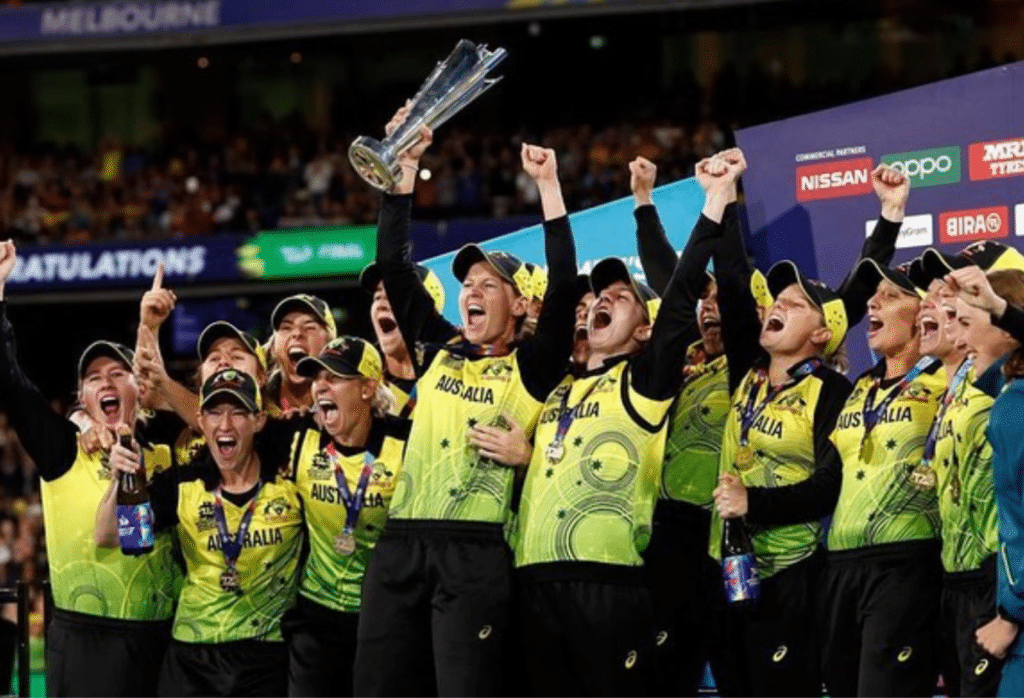Australia’s female cricket players are inching closer to equal pay after a landmark deal announced on Monday revealed a $133 million boost over a five-year period.
Cricket Australia (CA) and the Australian Cricketers’ Association (ACA) released a memorandum of understanding (MOU) that included an increase in payments for all centrally contracted cricketers, and a 66 per cent pay rise for female players.
Players with state and Women’s Big Bash League (WBBL) deals will receive an average pay package of $151,000.
For the first time in history, most dual-format female players will receive six figure packages (in excess of $100,000) while minimum state contracts will be set at roughly $60,000. The lowest-paid WBBL player will receive close to $20,000.
Match payments have been increased to just over $2,000 per day played —the highest in any women’s team sport.
Cricket Australia said it plans to spend another $53 million on the women’s game and increase the WBBL salary cap by 50 per cent.
Cricket Australia CEO Nick Hockley said he is excited about this latest boost for women’s cricket.
“Cricket now clearly offers the best earning opportunities of any team sport for elite female sportspeople,” Hockley said in a statement.
“I am particularly pleased this MOU represents another major step forward in the rise of women’s cricket with significant increases in remuneration for the inspirational role models of the world champion Australian women’s team and the WBBL who are driving substantial growth in female participation.”
“We are delighted to have reached an agreement on behalf of Australian Cricket that fairly rewards professional cricketers, while aligning with our strategy to grow and nurture the game at all levels.”
“We’re on a journey. We have seen an overall 26 per cent increase in player pay, but a 66 per cent increase in payments to our female players.”
Hockley stressed the importance of continuing to work towards closing the gender pay gap in the sport.
“We are on a path, we are not there yet,” he said. “But we have taken a major step forward in closing the gap. We have recognised the need to ensure that the BBL remains highly competitive in a changing global cricket landscape. We’re confident this agreement will help maintain its place at the heart of the Australian summer.”
The WBBL salary cap has now been doubled to $732,000 — a decision that both CA and the players’ union believe will keep the best overseas talent here in Australia. The decision also ensures Cricket Australia matches the pay conditions of the women’s Hundred in England, India’s WPL and other overseas franchise leagues.
Former Australian cricketer Rachael Haynes is optimistic about these latest decisions.
“If we unlock commercialisation, that’s the key,” Haynes said. “If we do that, I think we will get parity.”
“Enabling players more time to invest in themselves and their game, naturally that will help them get better.”
Professional female cricketers contracts have already increased from 15 to 18, plus two additional contracts assigned to each state side — bringing a total of 130 professional female cricketers in Australia.
The announcements on Monday were part of a $634 million five-year MOU reached by CA and ACA after some negotiation.
ACA CEO Todd Greenberg was excited to announce his first deal with CA, which represent a 26 per cent pay rise for all players across the sport.
“There is enormous capacity for growth right across the women’s game, as well as the BBL, both of which we believe have enormous untapped potential,” Greenberg said.
“Our men and women will benefit from significant investment into the BBL and WBBL, which will help ensure we have the best players playing.”
“I think we’ll have a few of millionaires in the next few years. And so they should because they’re the best in the world at what they do.”
“Unashamedly we stand here and want them to be remunerated at the levels that we are talking about. That is a wonderful thing, not only for those athletes but for every girl who wants to make a choice of what sport they want to play. Cricket is that choice and it’s where you can achieve those things.”
With the announcement of the new deal, cricket is set to become the first major Australian sport to achieve pay parity at a domestic level, though the numbers still leave retainers in women’s state contracts at 70 per cent of male players.
How are other sports faring?
The latest deal elevates cricket above other Australian women’s team sports. Super Netball has a minimum salary of $43,000 and maximum of $75,000.
In the AFLW, players have a minimum wage of roughly $40,000 and a maximum of $47,000. In May 2022, it announced a new average salary increase to $46,280.
Last month, NRLW announced plans to allow teams a salary cap of $900,000 for this season at an average of $37,500 per player. In comparison, the average salary of a top five five-eighth male player last year was $764,460.


